The COVID-19 outbreak is worrying people around the globe resulting to assumptions and myths. Therefore, the World Health Organization published seven myths around the outbreak, providing an explanation of why these assumptions are not real and what are the steps to follow to be safe.
#1 Cold weather and snow cannot kill the new coronavirus.
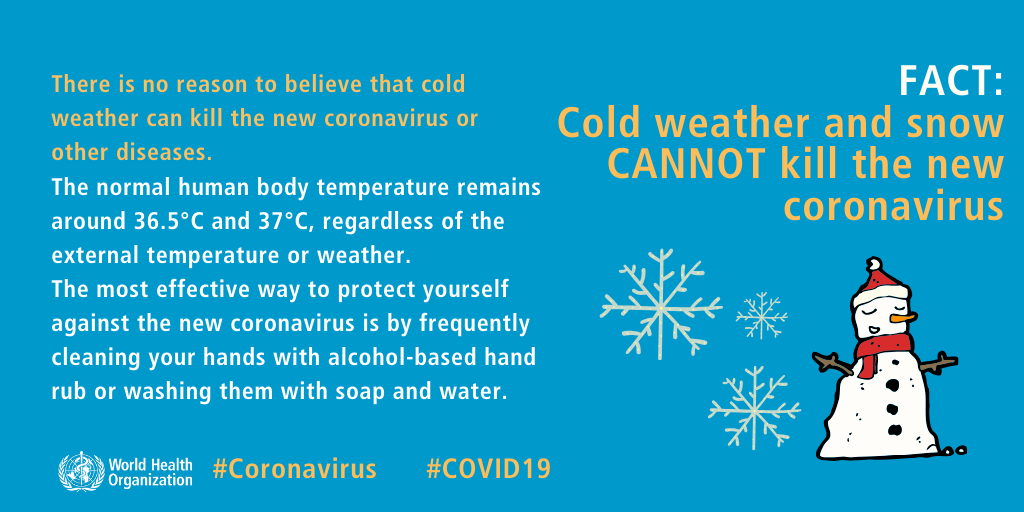
It is reported that the COVID-19 cannot be extinguished by cold weather. The normal human body temperature remains around 36.5°C to 37°C, despite the external temperatures or weather.
Who recommends that the most effective way to kill the COVID-19 is to frequently wash your hands with alcohol-based hand rub or washing them with soap and water, amongst other precautionary measures.
#2 Taking a hot bath does not prevent the new coronavirus disease
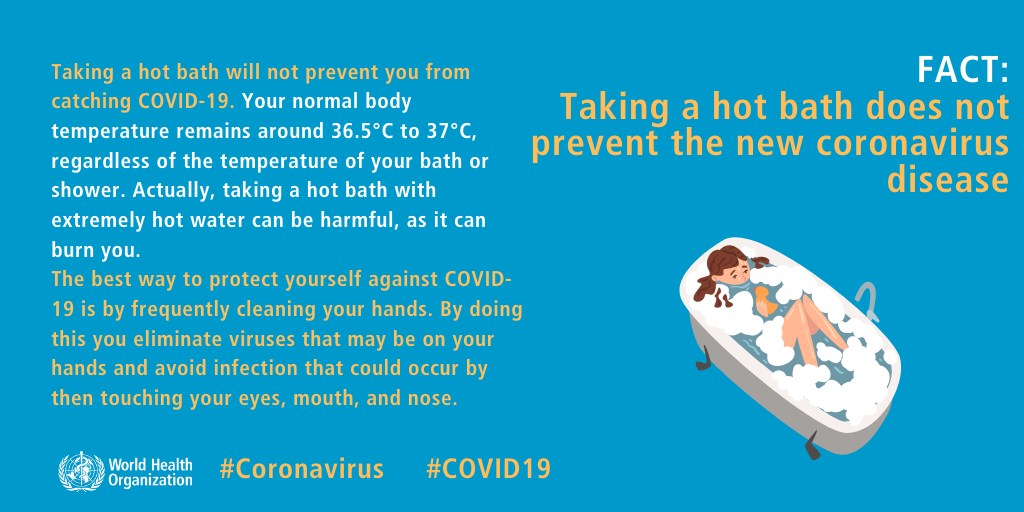
The “hot bath” myth comes in addition to the myth above, as taking a hot bath will not prevent the coronavirus disease.
WHO highlights that
Actually, taking a hot bath with extremely hot water can be harmful, as it can burn you.
#3 The new coronavirus cannot be transmitted through goods manufactured in China or any country reporting COVID-19 cases.
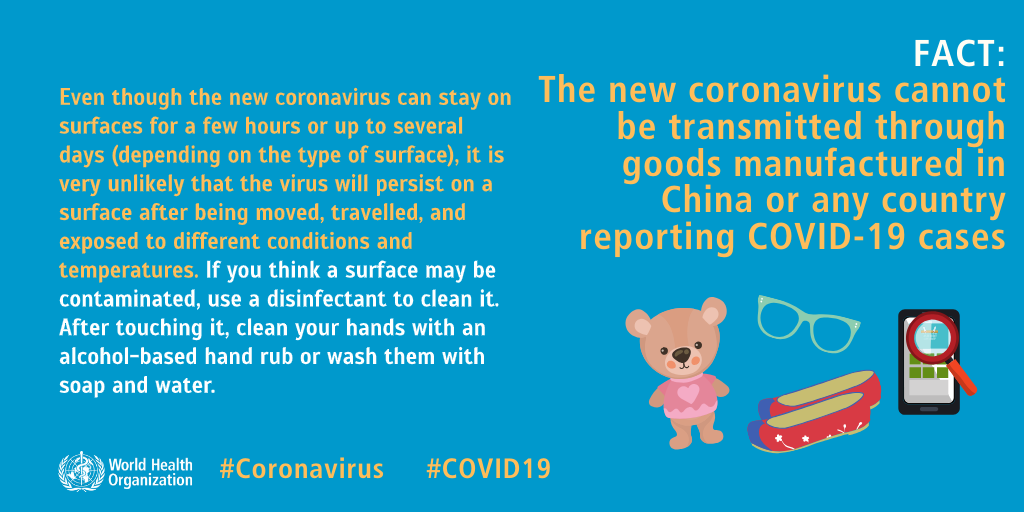
Many questions have arose concerning COVID-19 transmission through goods manufactures in China or any country that has reported coronavirus cases. However, even though the new coronavirus can stay on surfaces for a few hours or up to several days, depending on the type of surface, it is very unlikely that the virus will persist on a surface after being moved, travelled, and exposed to different conditions and temperatures.
If you think a surface may be contaminated, use a disinfectant to clean it. After touching it, clean your hands with an alcohol-based hand rub or wash them with soap and water.
#4 Are hand dryers effective in killing the new coronavirus?
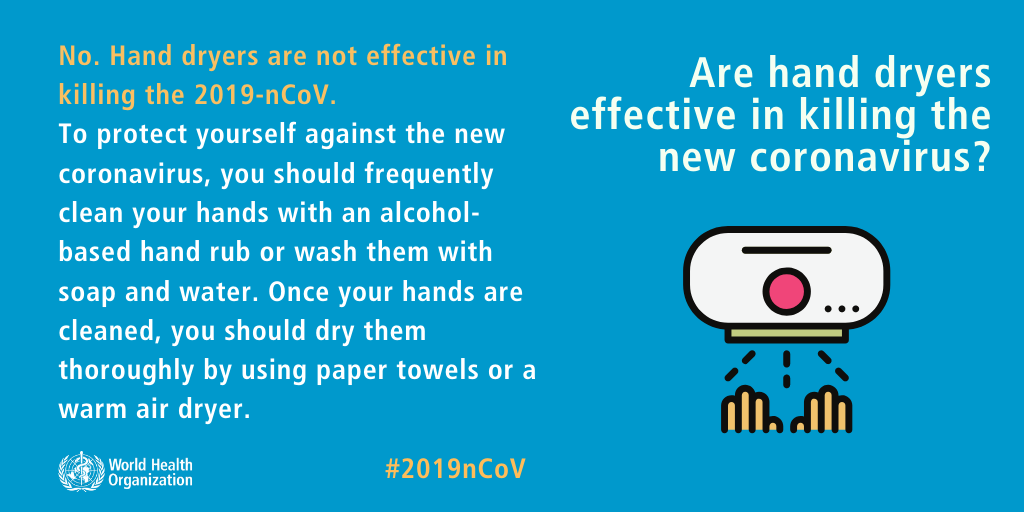
Hand dryers are not effective in killing the COVID-19. It is advisable that to protect yourself, you should frequently clean your hands with an alcohol-based hand rub or wash them with soap and water. Once your hands are cleaned, you should dry them thoroughly by using paper towels or a warm air dryer.
#5 How effective are thermal scanners in detecting people infected with the new coronavirus?
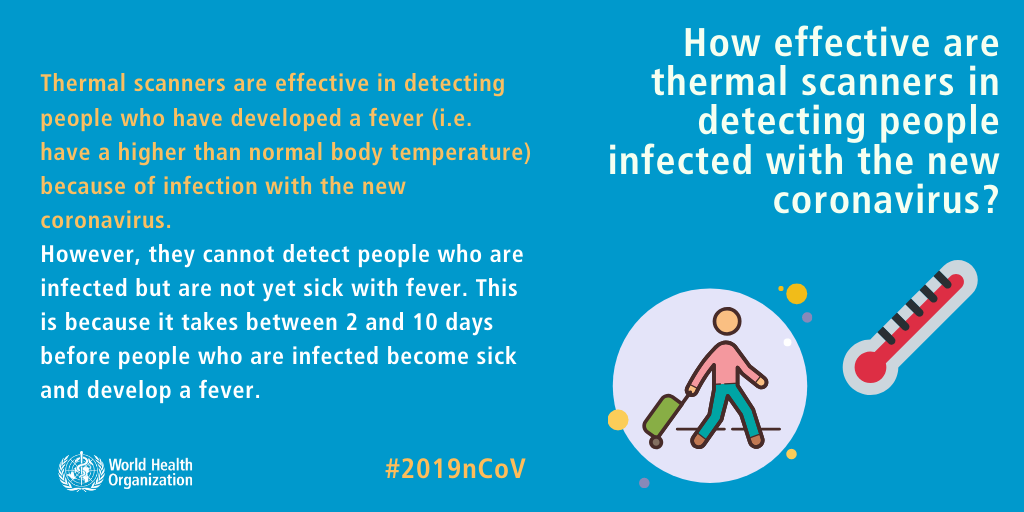
Thermal screening equipment has been installed in many ports and airports, where many passengers pass by. The scanners detect people who have developed fever, those in other words who have a higher than normal body temperature, because they have been infected by the COVID-19.
Yet, WHO informs that thermal scanners cannot detect those who have been infected but are not yet sick with fever. This is because it takes between 2 and 10 days before people who are infected become sick and develop a fever.
#6 Can pets at home spread the new coronavirus?

For the time being, there have been no reports that animals or pets, as dogs and cats, can be infected with COVID-19. Yet, WHO recommends that it is always a good idea to wash your hands with soap and water after contact with pets, being protected from various common bacteria such as Escherichia Coli and Salmonella.
#7 Can eating garlic help prevent infection with the new coronavirus?
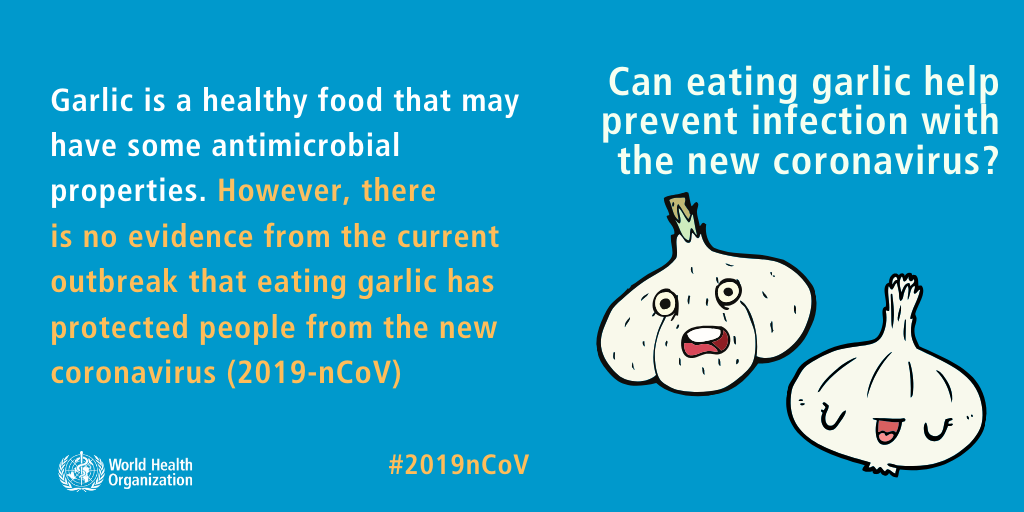
Although garlic is a healthy food, including antimicrobial properties, there has not been any evidence that it protects people from the new COVID-19.
Overall, to stay as much protected as possible from the outbreak, follow the key principles on reducing the risk of transmission:
- Avoiding close contact with people suffering from acute respiratory infections.
- Frequent handwashing, especially after direct contact with ill people or their environment.
- Avoiding unprotected contact with farm or wild animals.
- People with symptoms of acute respiratory infection should cover coughs and sneezes with disposable tissues or clothing, and wash hands.

































































